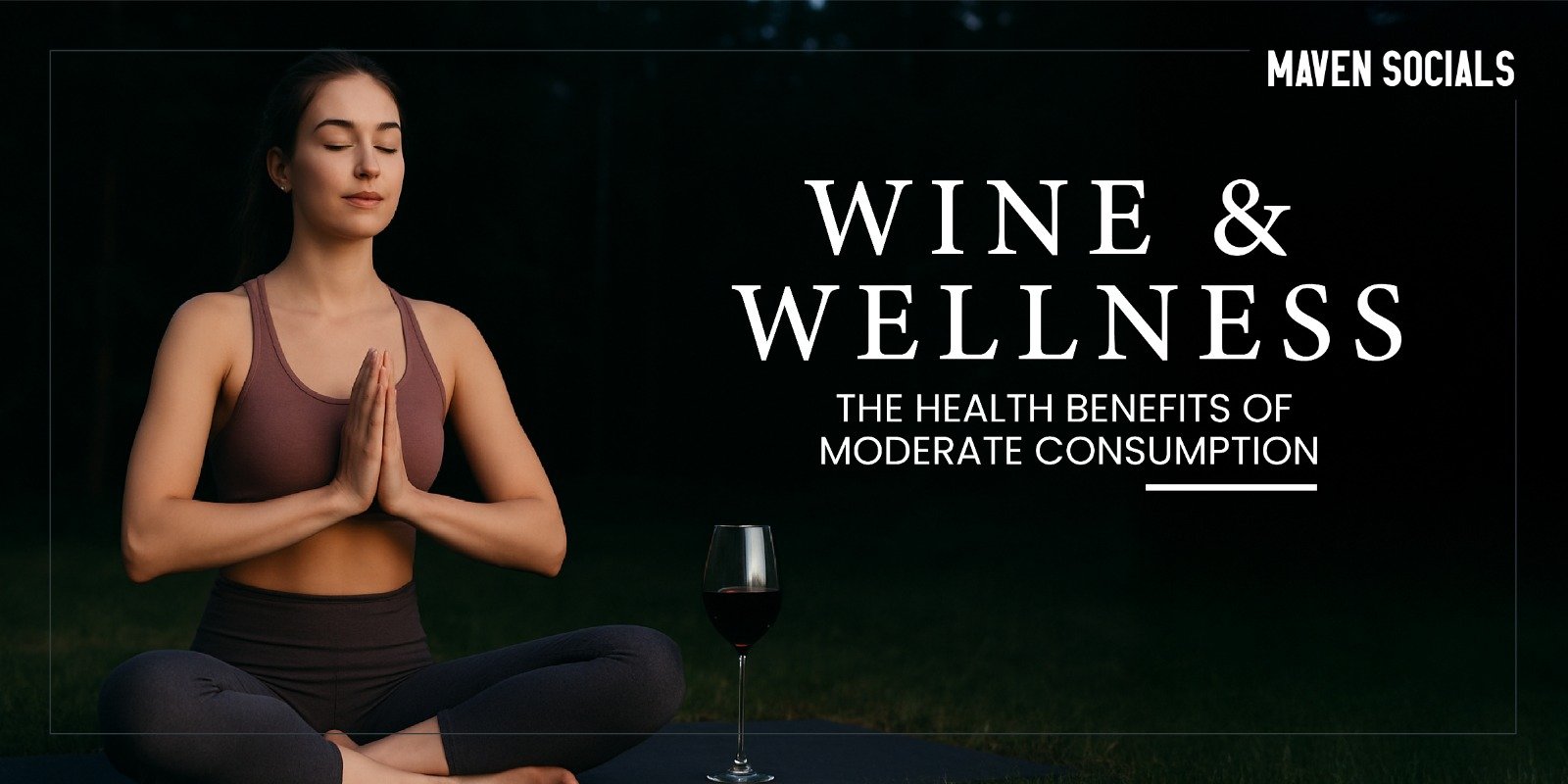The intersection of wine and health has fascinated researchers and wellness enthusiasts for decades. While the debate around alcohol consumption continues, emerging scientific evidence suggests that moderate drinking, particularly red wine benefits, may offer surprising advantages for overall well-being. As wellness trends India embraces mindful consumption practices, understanding the nuanced relationship between wine and health becomes increasingly relevant for health-conscious individuals seeking balanced lifestyle choices.
The Science Behind Red Wine’s Health Properties
Red wine benefits stem primarily from its unique composition of bioactive compounds, particularly resveratrol, a powerful polyphenol found in grape skins. This antioxidant powerhouse has captured the attention of researchers worldwide for its potential therapeutic properties. The concentration of resveratrol in red wine varies significantly depending on grape variety, growing conditions, and winemaking processes, with Pinot Noir and Cabernet Sauvignon typically containing higher levels.
Scientific studies have demonstrated that resveratrol exhibits anti-inflammatory, cardioprotective, and neuroprotective properties, making it a cornerstone in discussions about wine and health. The fermentation process that creates red wine allows for extended contact with grape skins, extracting these beneficial compounds that contribute to the wine’s health profile.
Cardiovascular Health: The Heart of Wine’s Benefits
Perhaps the most extensively studied aspect of wine and health revolves around cardiovascular protection through moderate drinking. The renowned “French Paradox” first brought attention to the potential heart-protective effects of red wine consumption, observing that French populations with traditionally wine-inclusive diets showed lower rates of coronary heart disease despite consuming rich foods.
Resveratrol and other polyphenols in red wine help:
- Improve endothelial function
- Reduce LDL cholesterol oxidation
- Decrease inflammation in blood vessels
- Increase HDL (good) cholesterol levels
- Support healthy blood pressure regulation
The antioxidants in red wine also help prevent the formation of blood clots and support overall vascular health, contributing to the growing interest in wellness trends India that incorporate mindful alcohol consumption.
Mental Well-being and Cognitive Health Benefits
The relationship between moderate drinking and mental wellness extends beyond simple relaxation effects. Studies suggest that the resveratrol found in red wine may support cognitive function and potentially reduce the risk of neurodegenerative diseases. This powerful antioxidant crosses the blood-brain barrier, where it may help protect neurons from oxidative stress and inflammation.
Research has indicated that individuals who practice moderate drinking patterns, particularly with red wine, may experience lower rates of depression and anxiety compared to both heavy drinkers and complete abstainers. The social aspects of wine consumption, often enjoyed in convivial settings, also contribute to mental well-being by fostering social connections and stress reduction. As wellness trends India increasingly focus on holistic health approaches, understanding these mental health benefits of wine and health becomes particularly relevant.
Longevity and Anti-Aging Properties
The connection between red wine benefits and longevity has captured significant scientific attention, particularly regarding resveratrol’s potential anti-aging properties. This remarkable compound activates certain genes associated with longevity and cellular repair mechanisms, potentially slowing the aging process at a molecular level.
Studies in various populations have suggested that moderate drinking, especially of red wine, may be associated with:
- Increased lifespan
- Reduced risk of age-related diseases
- Enhanced cellular repair mechanisms
- Improved cognitive function in aging
The antioxidant properties of wine help combat free radical damage, which contributes to cellular aging and disease development. Mediterranean populations, known for their wine-inclusive diets and exceptional longevity, provide compelling real-world evidence of these wine and health connections. However, it’s important to note that these longevity benefits are observed specifically in the context of moderate drinking patterns, not excessive consumption.
The Critical Importance of Moderation
Understanding moderate drinking guidelines is essential for maximizing wine and health benefits while minimizing risks. Medical professionals typically define moderate consumption as:
- One glass per day for women
- Up to two glasses per day for men
- Each serving containing approximately 5 ounces of wine
This moderation principle is fundamental to realizing red wine benefits without crossing into harmful consumption territories. Wellness trends India increasingly emphasize mindful drinking practices that align with these scientific guidelines. The key lies in consistency rather than binge consumption – regular, moderate intake appears more beneficial than sporadic heavy drinking.
Antioxidant Powerhouse: Beyond Resveratrol
While resveratrol receives significant attention in wine and health discussions, red wine contains numerous other beneficial compounds that contribute to its wellness properties. Flavonoids such as quercetin, catechins, and anthocyanins work synergistically to provide anti-inflammatory and antioxidant effects throughout the body.
These compounds help:
- Neutralize harmful free radicals
- Support immune function
- May reduce cancer risk when consumed as part of moderate drinking patterns
- Provide comprehensive cellular protection
The tannins in red wine, which give it structure and complexity, also possess antioxidant properties that contribute to overall health benefits. This complex array of beneficial compounds explains why whole red wine consumption appears more beneficial than isolated resveratrol supplements, supporting the holistic approach favored by current wellness trends India.
Wine and Digestive Health
Emerging research suggests that moderate drinking of red wine may support digestive health through its impact on gut microbiome diversity. The polyphenols in red wine act as prebiotics, promoting the growth of beneficial bacteria while inhibiting harmful microorganisms in the digestive tract.
This microbiome support contributes to:
- Improved digestion
- Enhanced immune function
- Better nutrient absorption
- Overall wellness enhancement
Studies have shown that individuals who consume red wine in moderation tend to have more diverse and healthier gut bacteria profiles compared to non-drinkers. The wine and health connection extends to digestive enzyme production, with some research suggesting that moderate wine consumption with meals may enhance digestion and nutrient uptake. As wellness trends India increasingly focus on gut health, understanding these digestive benefits of red wine benefits becomes particularly relevant for health-conscious consumers.
Important Disclaimers and Risk Considerations
IMPORTANT MEDICAL DISCLAIMER: While exploring wine and health benefits, it’s crucial to acknowledge the significant risks associated with alcohol overconsumption. Excessive drinking can lead to:
- Liver disease
- Increased cancer risk
- Addiction
- Cardiovascular problems
- Numerous other health issues that far outweigh any potential benefits
The line between moderate drinking and harmful consumption can be thin, and individual tolerance varies significantly based on genetics, body weight, medications, and overall health status. Certain populations, including pregnant women, individuals with alcohol addiction history, those taking specific medications, and people with certain medical conditions, should avoid alcohol entirely.
Wellness trends India emphasize the importance of personalized health approaches, and wine consumption decisions should always be made in consultation with healthcare providers. The potential benefits discussed should never be used to justify problematic drinking patterns or to encourage alcohol consumption in non-drinkers.
Integrating Wine into a Holistic Wellness Lifestyle
For those who choose to incorporate moderate drinking into their wellness routine, understanding how wine fits into a broader health strategy is essential. Red wine benefits are maximized when combined with a Mediterranean-style diet rich in fruits, vegetables, whole grains, and healthy fats.
Best practices include:
- Enjoying wine with meals rather than on an empty stomach
- Choosing quality over quantity
- Combining with regular exercise
- Maintaining adequate sleep
- Practicing stress management
Wellness trends India increasingly favor mindful consumption practices that emphasize quality over quantity, encouraging consumers to savor smaller amounts of higher-quality wines. Pairing wine consumption with regular exercise, adequate sleep, stress management, and social connection amplifies the potential wellness benefits while maintaining the critical balance that defines healthy wine and health relationships.
Conclusion: A Balanced Perspective on Wine and Wellness
The relationship between wine and health represents a fascinating intersection of pleasure and wellness that continues to evolve as research advances. While red wine benefits, particularly from resveratrol and other antioxidants, show promising potential for supporting cardiovascular health, cognitive function, and longevity, the foundation of these benefits rests entirely on moderate drinking practices.
As wellness trends India embrace more nuanced approaches to health and lifestyle choices, understanding both the benefits and risks of wine consumption becomes increasingly important. The key message remains clear: for those who choose to drink, moderation is not just recommended – it’s essential for transforming wine from a potential health risk into a possible wellness ally.
Always consult with healthcare professionals before making significant changes to alcohol consumption patterns, and remember that the healthiest choice varies significantly from person to person based on individual circumstances and health profiles.













